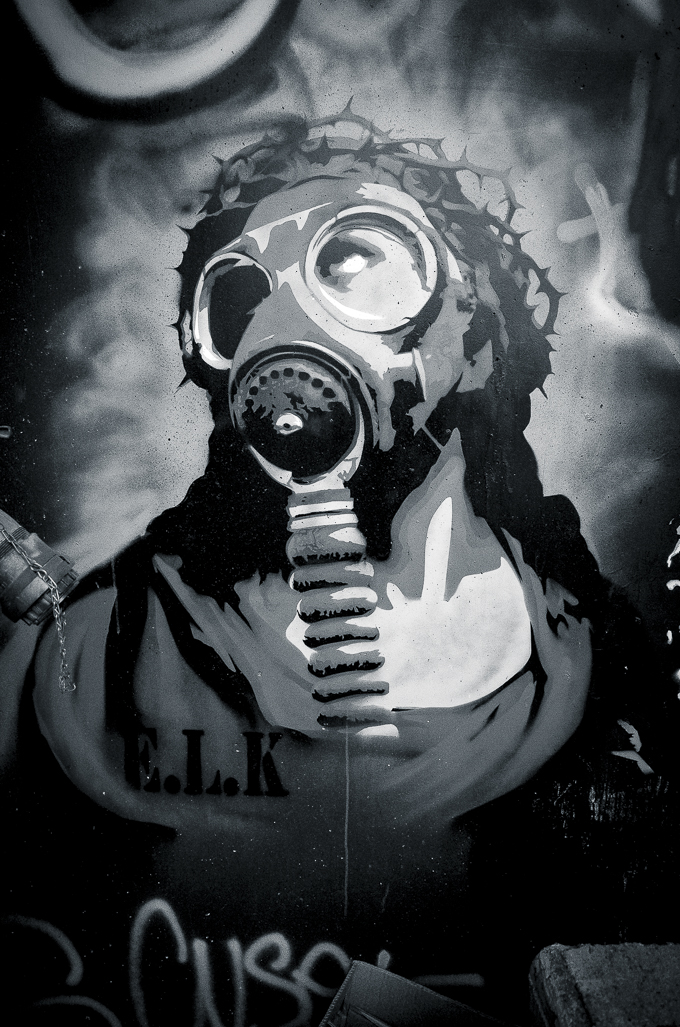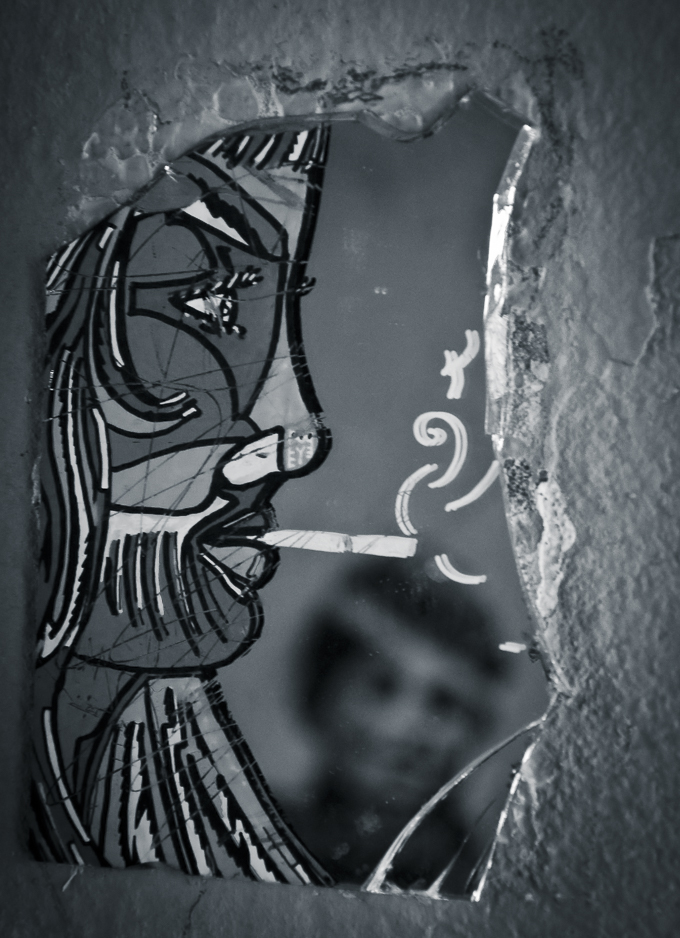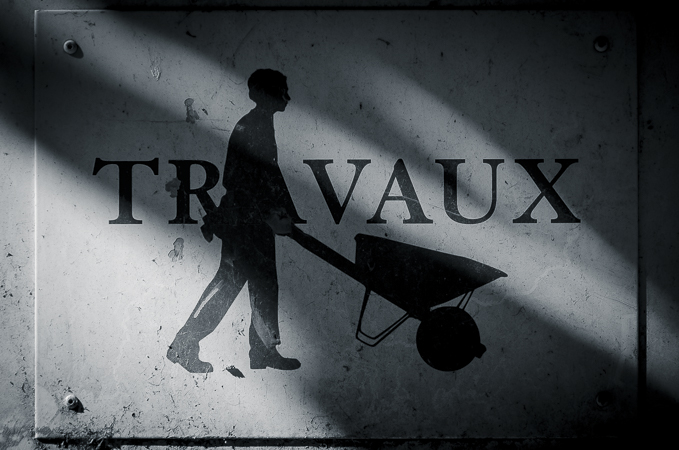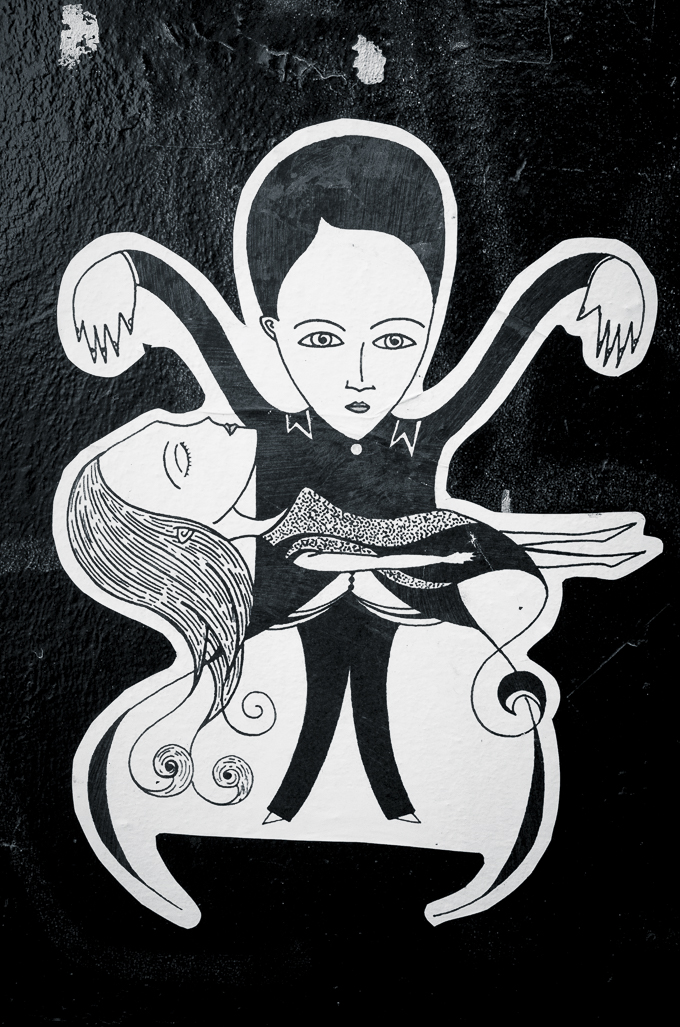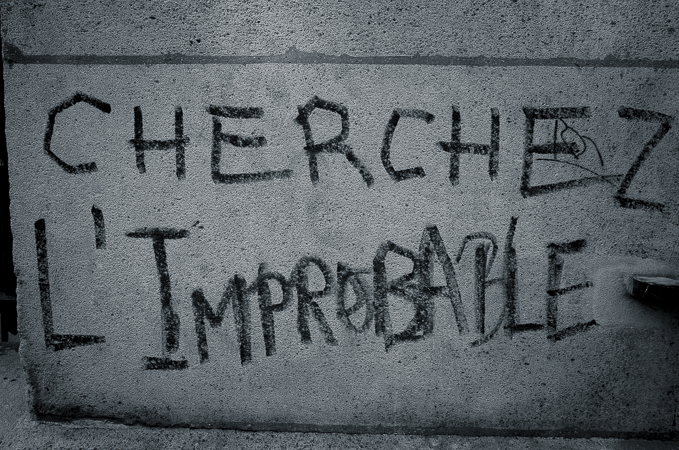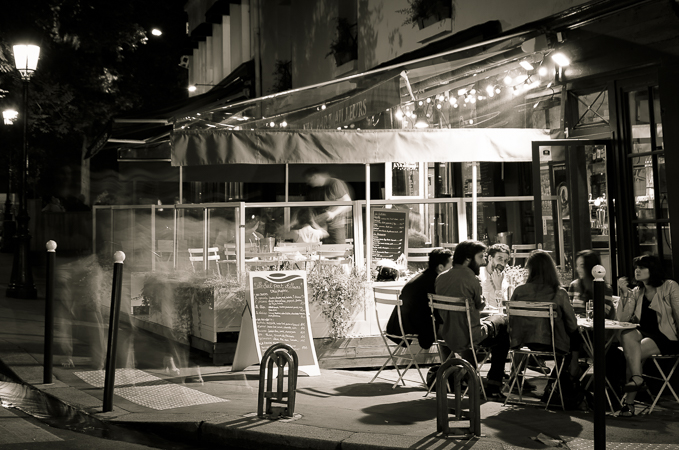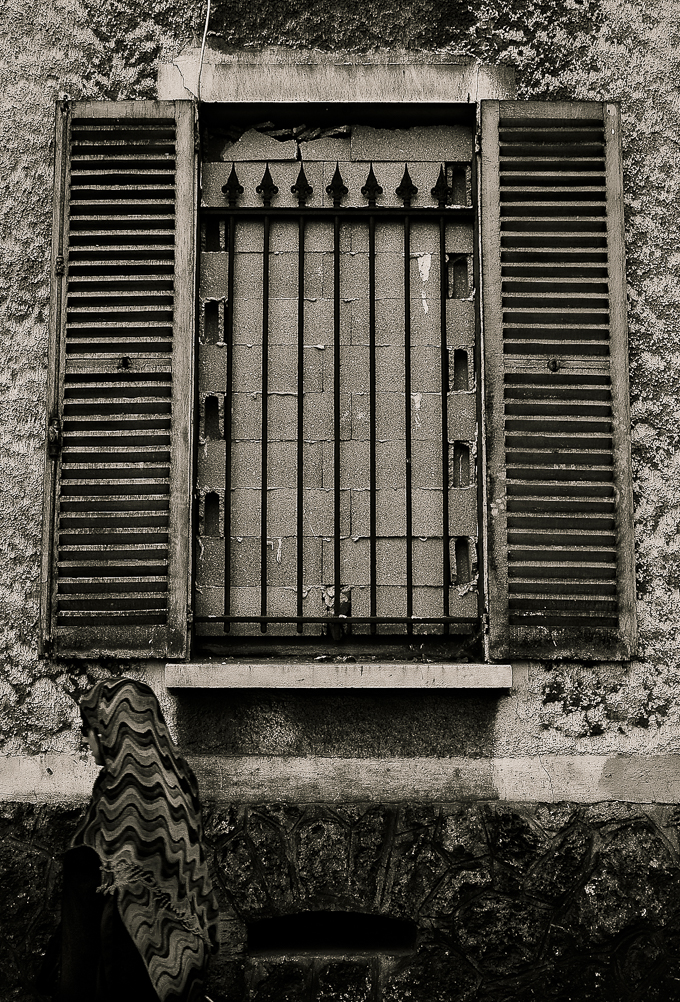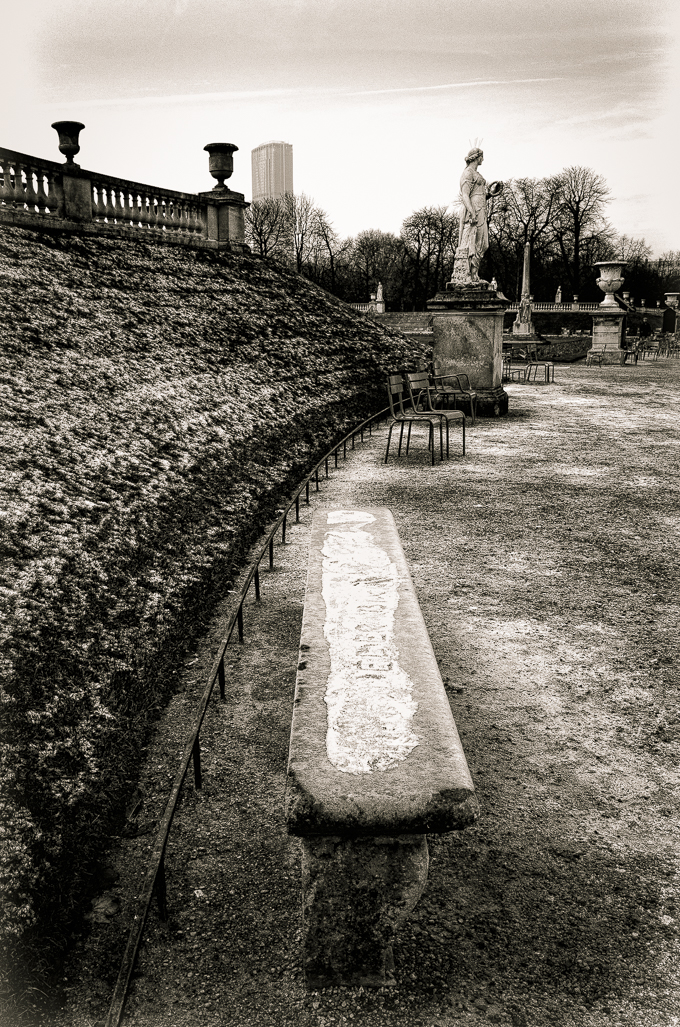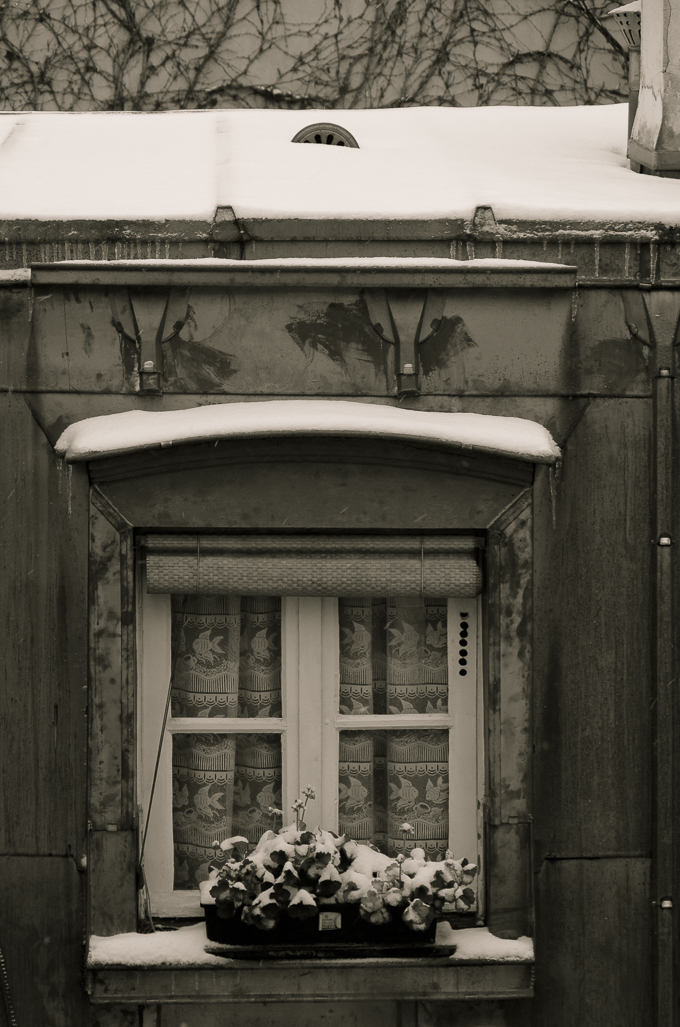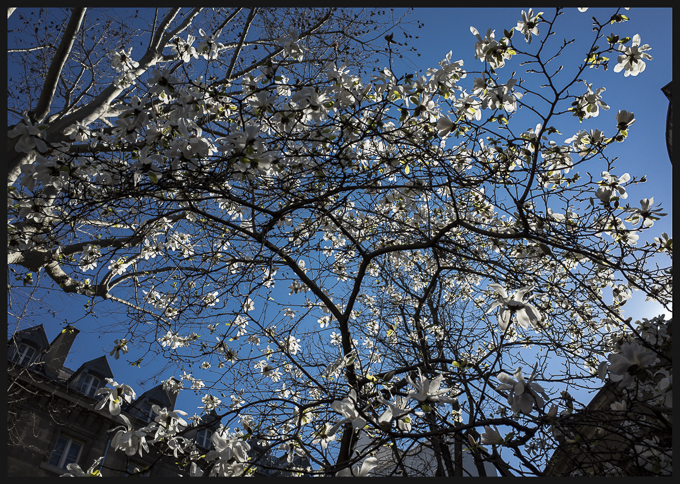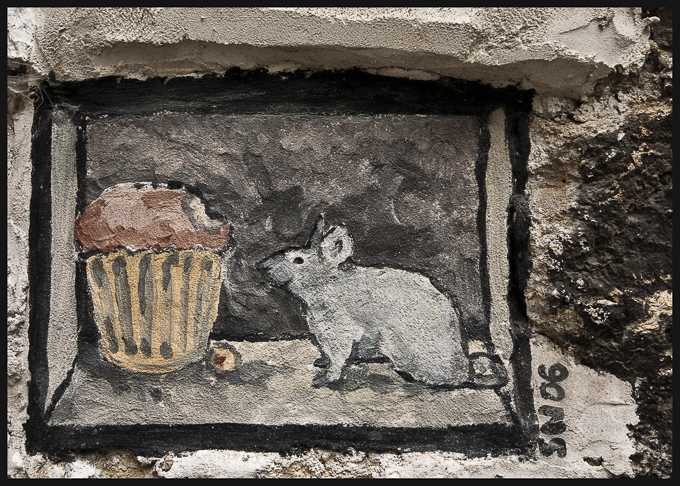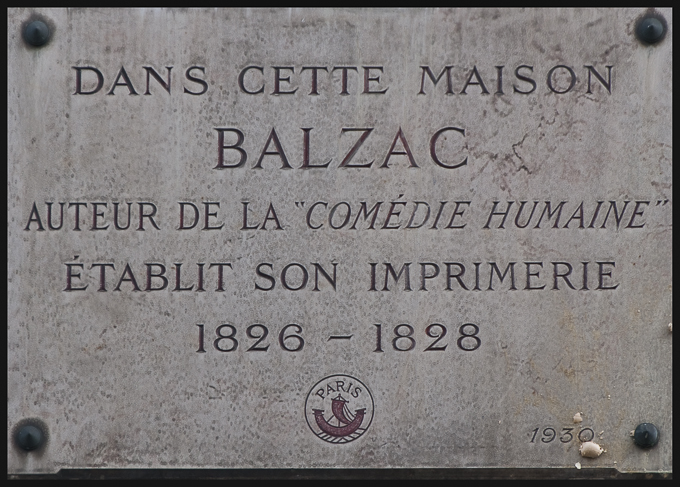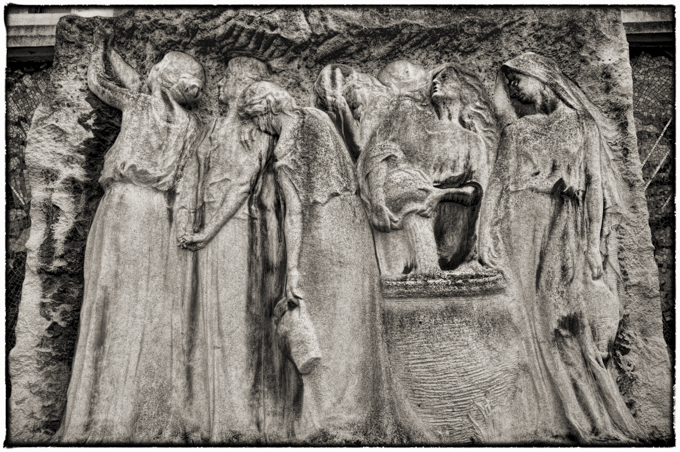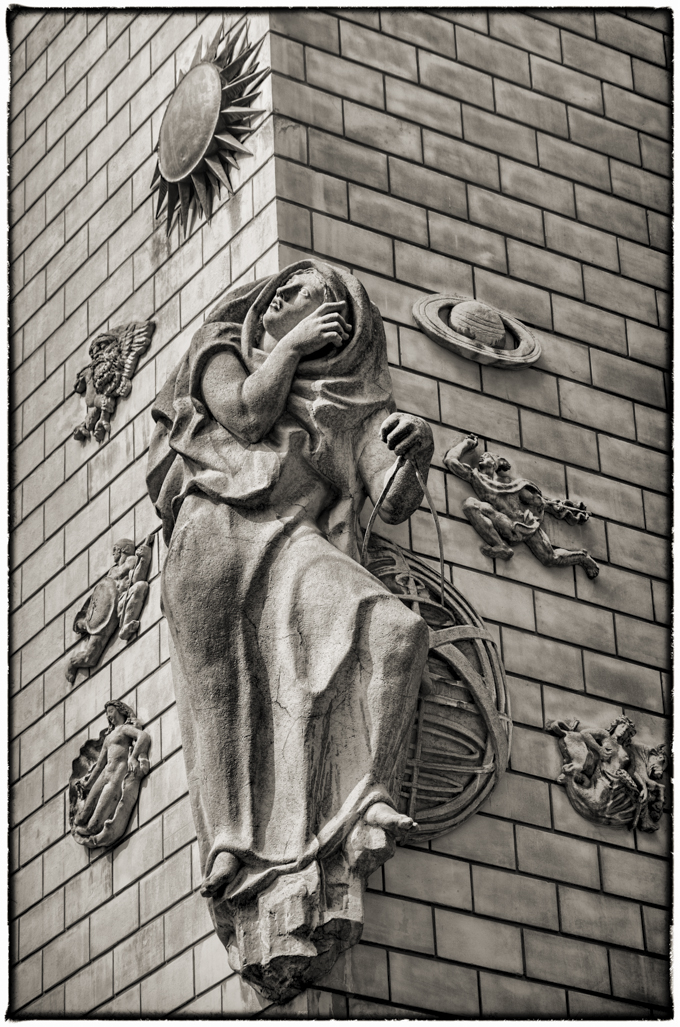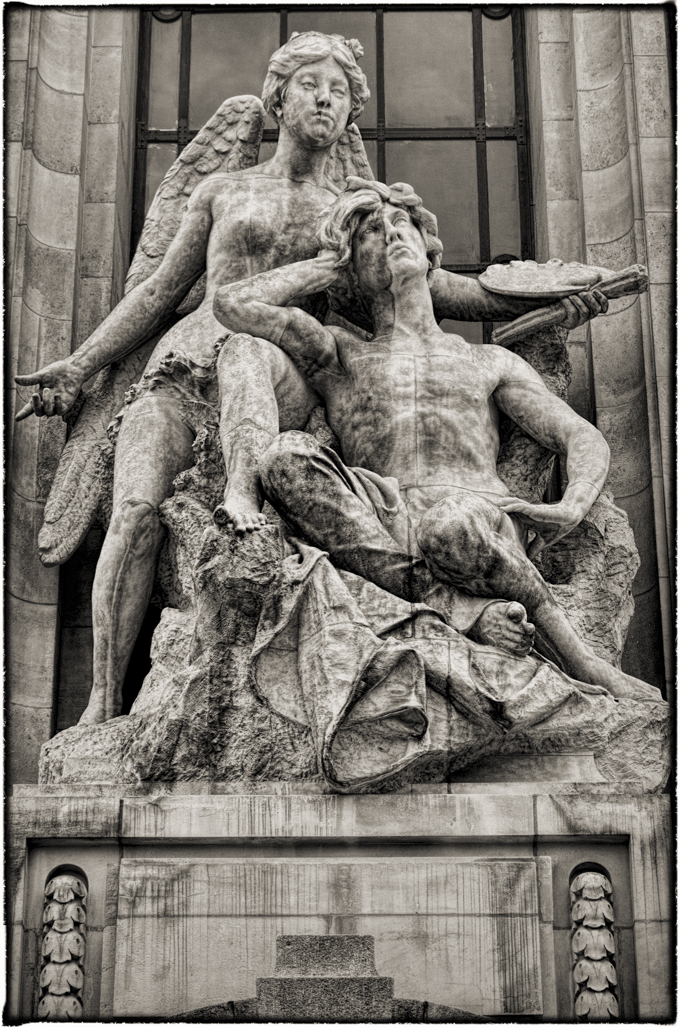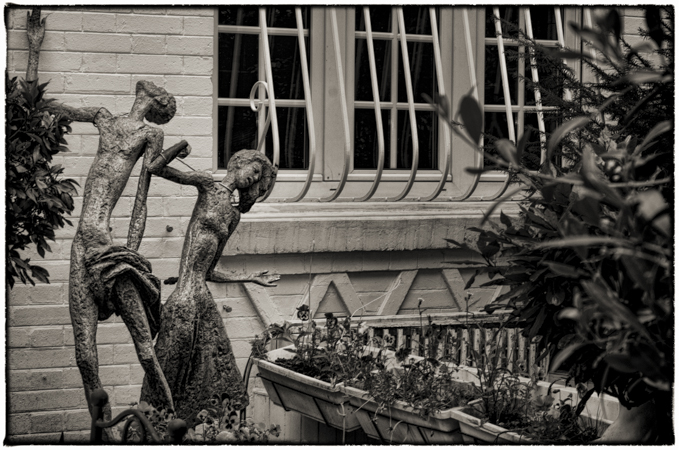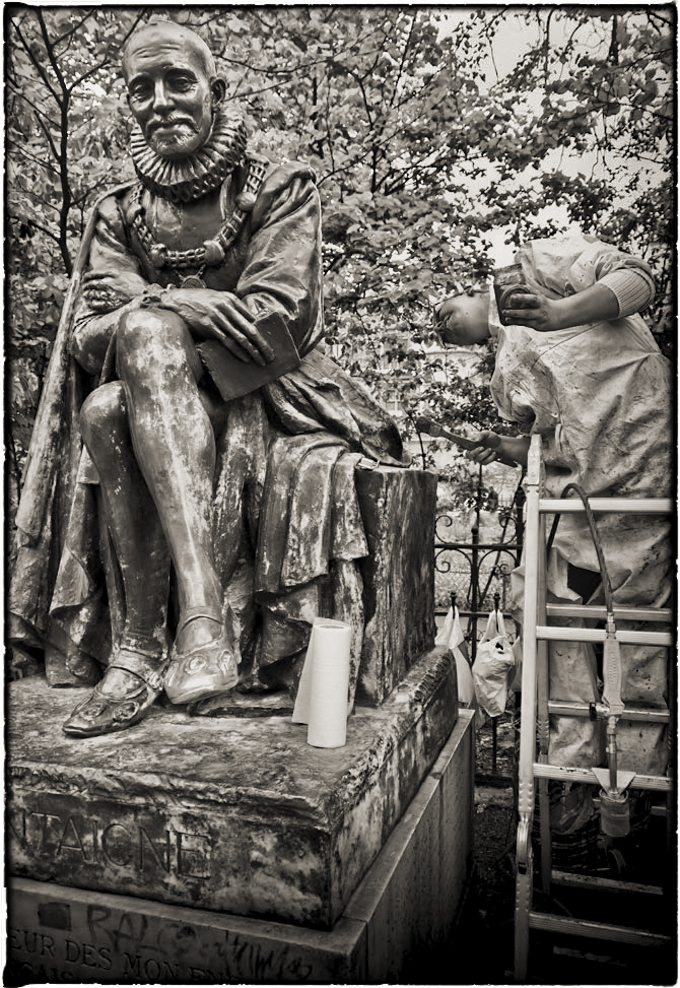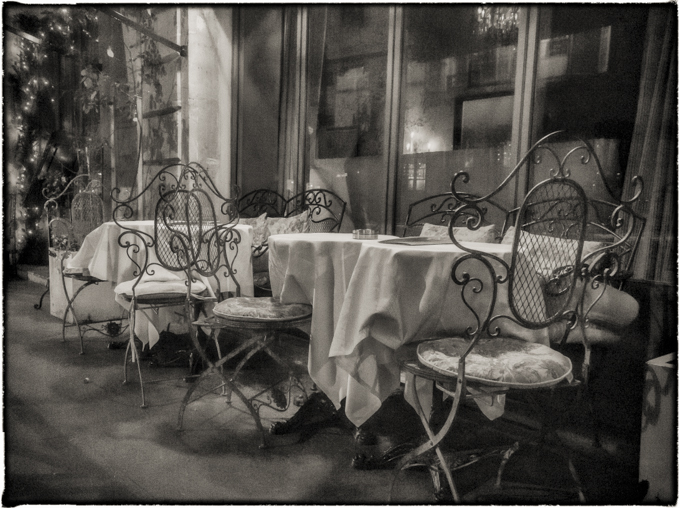Elements of Ecstasy, a Five Year Update
 02.1.2016
02.1.2016
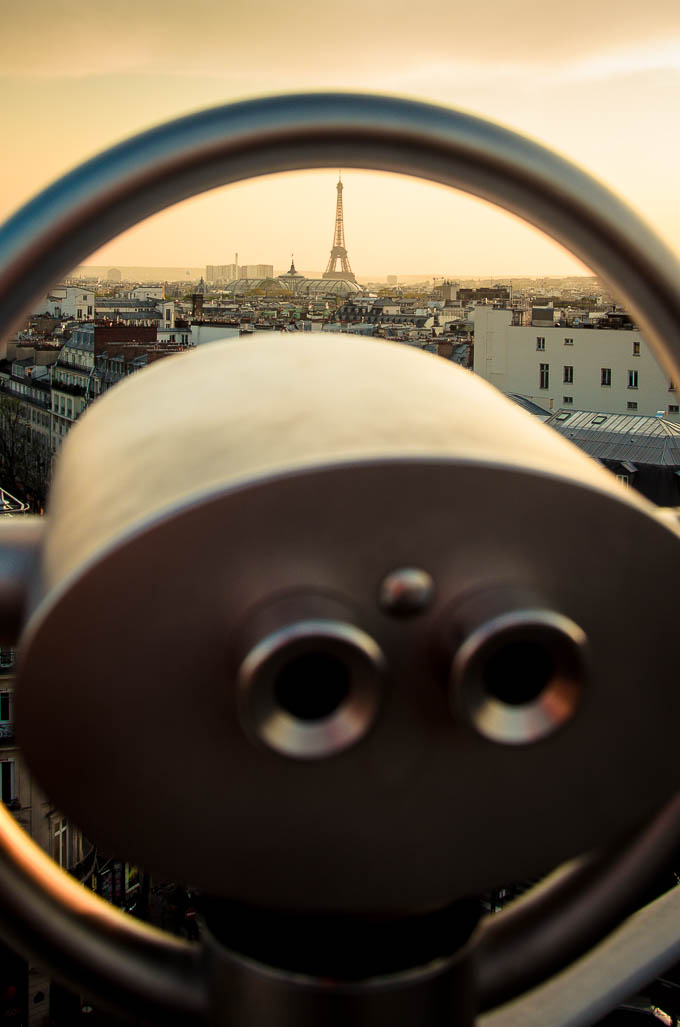
Take a big question of your life: Why are my sleep hours so crazy? Bring it to a specialist.
You love everything about her: her strong nose, her mood balanced between caring and taking care of business, her beaded scarf on black jacket, the sparkle of Arabian Nights in the consultation room.
You have one hour to tell her your entire psychological and medical history, and you do so in French. She gives you a recipe for change.
You join your adored husband on Boulevard du Montparnasse where he’s taking photos near La Closerie des Lilas.
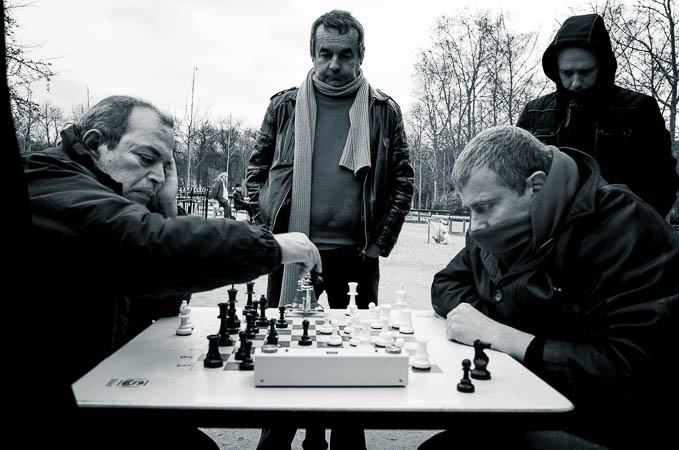
Arm in arm you walk through the curving paths, the sheltering trees, the thwock of tennis balls, the elegance of chess in the Jardin du Luxembourg.
“Have you ever given up something you were good at?” he asks.
“Yes,” I say. “Have you?”
“Chess,” he says.
“Why?”
“I was pretty good when I was six years old. But my mother brought me late to an important city tournament. Now I don’t remember how to play.”
“Oh, my darling, my lateness must drive you nuts.”
“It’s better now,” he says. “Ten minutes, that's Paris time…. How about you?”
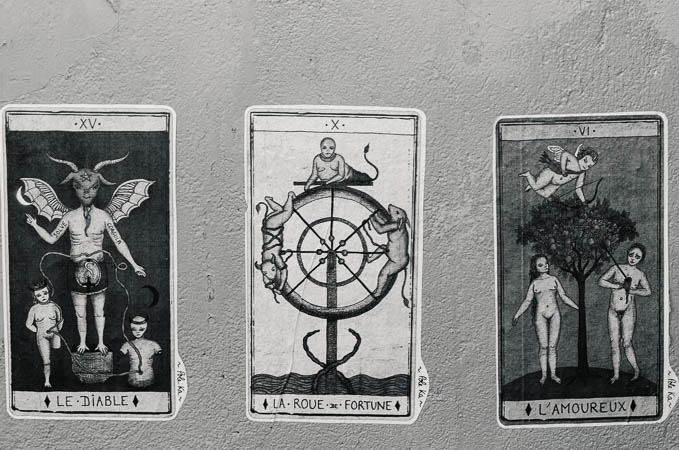 Street art © 2016 by Pole Ka
Street art © 2016 by Pole Ka
“I was good at reading Tarot,” I say. “But I didn’t like the way some people projected guru nonsense on me.”
We walk across Paris to Simrane. The January sales! We each have a throw pillow cover in our bags, shredded by our chatons. We want the jewel colors (van Gogh), not the milky impressionist ones (Monet), or the newer fluorescents. We find replacements.
At Le Pré Aux Clercs, we take an alcove table. I glance in the mirror. Where did that lost girl go who was so besieged by men she could barely think? She’s now a woman (mostly) at home in her body and soul, no longer pursued, but captured, captivated by this man across from her, a man who knows how to listen, a man who is thrilled by many of the same things that thrill her, and who himself thrills her still, who, like her, appreciates the waiter, attentive but reserved, unobtrusive but present, and who brings to this intimate nook perfectly cooked saumon et légumes for her, and salade de tomates et Mozzarella et soupe a l’oignon for him.
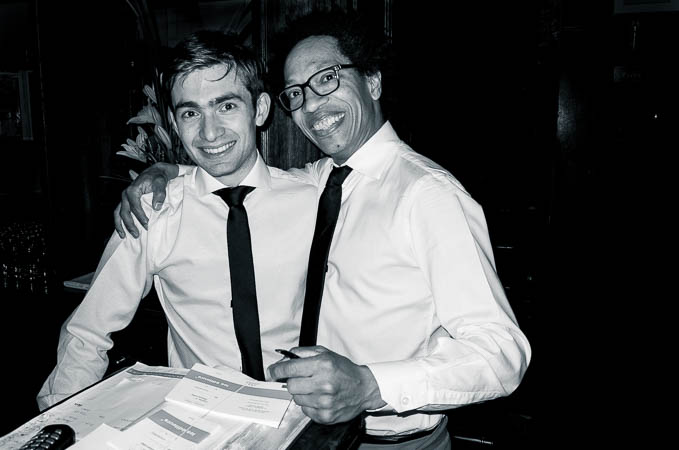 Paris waiters
Paris waiters
It’s the five-year anniversary of our living in Paris. We click our cafes crèmes, talk of how the refugee crisis is affecting Europe, and what we can do to help. Let’s ask friends on Facebook, that world-wide forum of brilliance and idiocy.
Down rue Jacob we go. The waiter flies after us with a glove one of us dropped. I’m dizzy with the beauty of the displays in every vitrine. Remember Jung’s words about the Door to the Divine for us intuitive types: sensory beauty. Oh yes it is. Here is a shop I’ve never seen with Navajo and Mexican-printed patterns of sweaters and skirts.
I dart in, find the scarf I’ve been looking for, but he’s waiting on the sidewalk, I don’t want to hold him up.
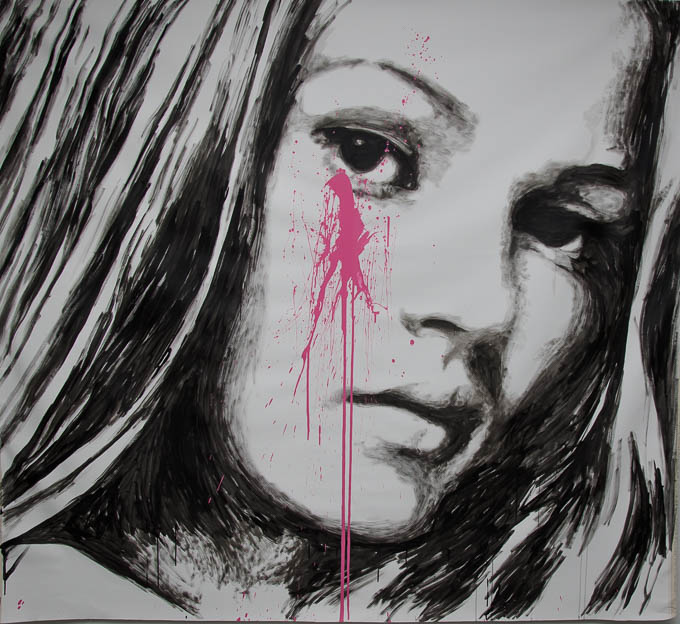 Street art © 2016 by Konny Steding
Street art © 2016 by Konny Steding
We meander up rue de Seine. There on the corner of rue de Buci is a new street art paste-up. He stops to take a photo. “I know you hate to backtrack,” I say, “but we’re here & the sales are on & I hate to shop & may not want to come back & I’d really like to try on this scarf & you say yes or no.” I don’t need his permission, but he knows what suits me. Back we go. “Yes,” he says. And it’s half off.
Down rue Saint-André-des-Arts to Starbucks for beans. An unhappy French girl at the counter. I see why when her male colleague orders her around, micromanaging her.
We switch him over from English to French, and chat with the girl. By the time we leave, she’s cheerful.
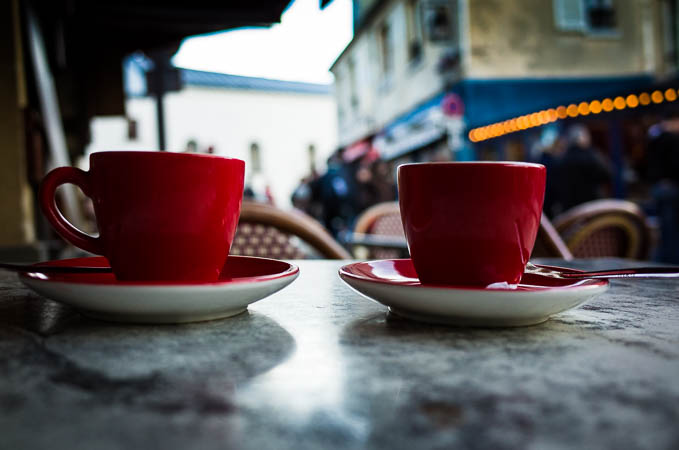
At our favorite Alice in Wonderland bookstore, I buy The Cultural Lives of Whales and Dolphins, and Edith Wharton’s Ethan Frome, a novel that helped me get accepted early to college, when I wrote an essay about A Book I Hated.
I wonder why at age 17 I hated it so. Will re-reading it bring back the time, for a fictional story I’m writing?
At home les chatons greet us, with vomit on the rug and purrs. Lift it off, soak it with bubbly water. Move our two couches close together facing each other to create a square enclosure and, voila! le cratère de l’amour.
We lie together (no, not “lay,” you writers who keep posting variations of “I was laying on the bed”) against pillows, reading. Ethan Frome: the first chapter is clotted prose. Then the characters of Ethan, Zeena and Mattie in a small village in western Massachusetts envelop me with their tragic tale.
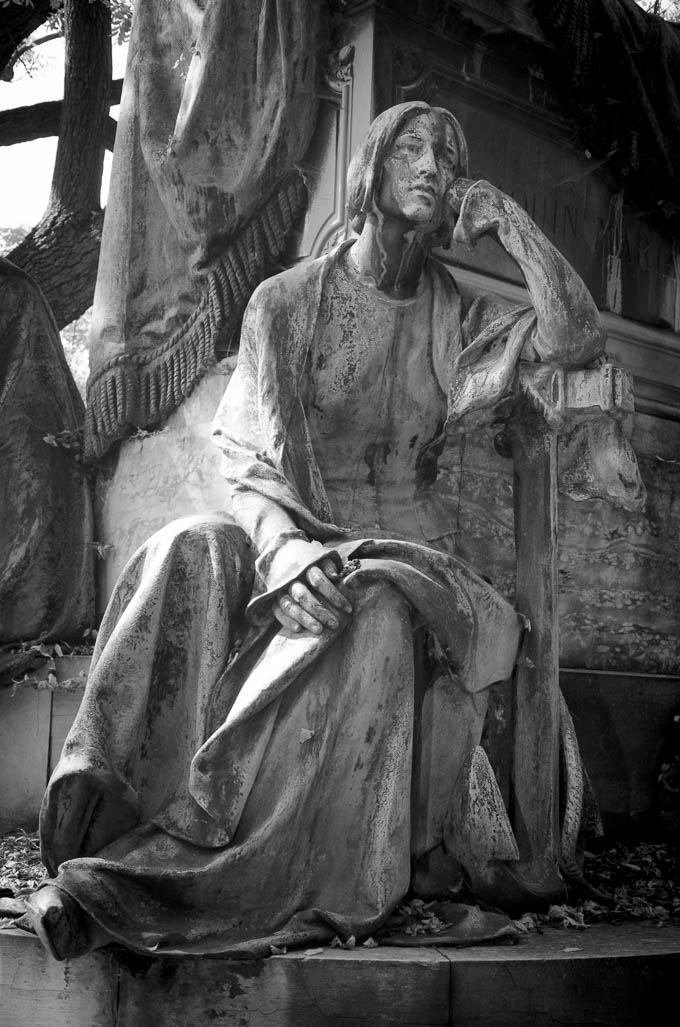
It is grim. Hopeless. And rather unimaginative. Sometimes the dialogue between Ethan and Mattie seems melodramatic. I wonder how much experience of love Edith Wharton had. “Oh Mattie.” “Oh, oh, Ethan.” “Oh, oh, oh, Mattie.” “Oh, oh, oh, oh, Ethan.”
And then they try to kill themselves.
Surely even these stunted lives have a few moments of joy besides the first blush of falling in love. But man, can she write about weather.
In an essay at the back of the book, Lorna Sage writes, “Edith Wharton got to know the kind of dead-alive New England hamlets she is describing by taking excursions in her chauffeur-driven motor car.… One should dwell a little on this image of Wharton touring the territory of her tragedy – a woman of enormous energy, wealth and creative curiosity finding her subject in the ‘insanity, incest and slow mental and moral starvation’ of the near-extinct inhabitants she observed on her travels. The contrast between Wharton and her subject could not be more striking.”
She wrote this novella in French while living in Paris, then with ease, a second time, in English. That might explain that first congested chapter.
In A Backward Glance, Wharton wrote, “From the first I know exactly what is going to happen to every one of them; their fate is settled beyond rescue, and I have but to watch and record.” Control freak much? Don’t her characters ever surprise her?
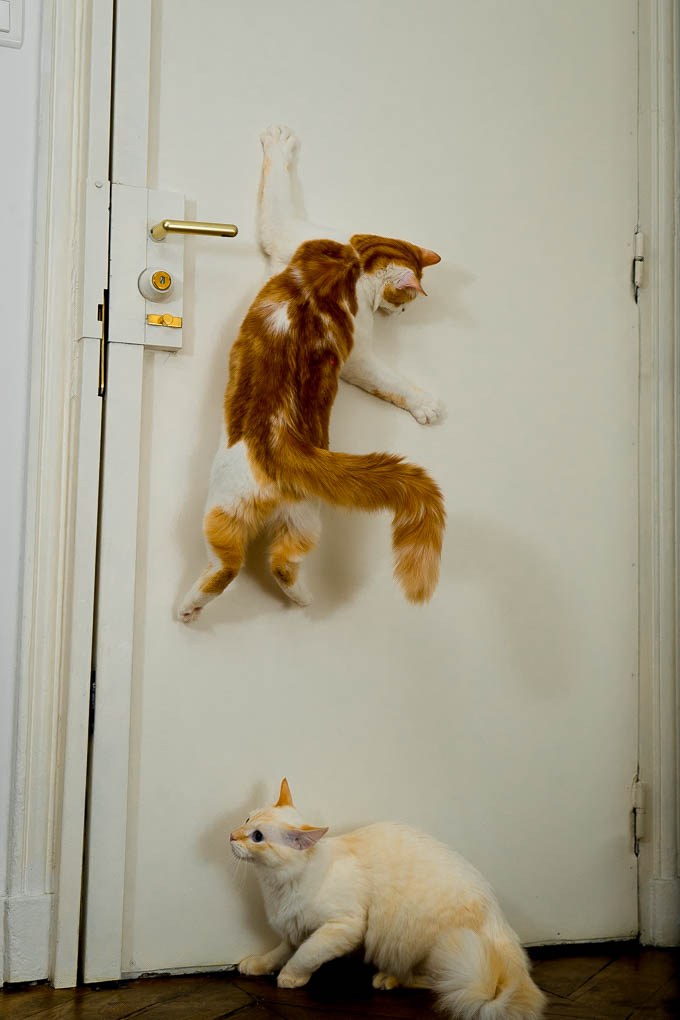 Pollux (top) and Castor
Pollux (top) and Castor
Les chatons nestle against us, Pollux on Richard’s head, giving him a tongue shampoo, Castor burrowed close to my feet. Hyper-active Pollux has been taking a natural tranquillizer given him by our vet, and it’s making him mellow enough to lay lie down with us, calmly at times.
Later, I check e-mail and find on Poem-a-Day a poem by our friend and mentor, David St. John. https://www.poets.org/poetsorg/poem/alexandr-blok Yes, there it is: the ecstatic sensibility I’ve always loved in his poems. The passion for subtle intellect and sensual beauty that Paris embodies. It’s why we love his poems, and him. And why we love this city.

 David St. John,
David St. John,  Edith Wharton,
Edith Wharton,  Paris,
Paris,  cafes,
cafes,  cats,
cats,  literature,
literature,  psychology,
psychology,  waiters in
waiters in  Paris Life
Paris Life 

